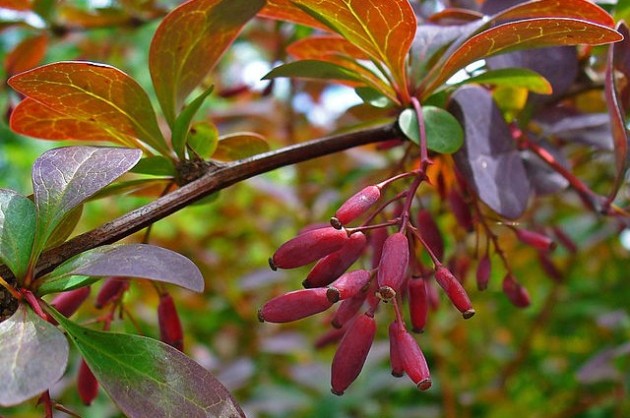Plants have been shown to be able to assess risks and adopt strategies suited based on the circumstances to maximise their chances of producing offspring.
Tephritid fruit flies lay their egg in seeds inside the fruit of European Barberry (Berberis vulgaris) plants. When the larva develops it eats the seeds as its start to life. Like some other plants, the barberry has evolved a defense, which botanists call “selective seed abortion”. This highly targeted capacity allows it to shut down the development of an infected seed, killing the parasite.
Most barberry fruits contain two seeds. Aborting one protects the other from being eaten by the larva.
However, Dr Hans-Hermann Thulke of the University of Gottingen has shown in The American Naturalist the barberry’s capacities go much further.
In those cases where a fruit contains only a single seed the plant usually does not abort it, even though this means it invests energy that will likely not only never lead to offspring, but will breed another generation of parasites to torment it in future.
This may seem an irrational choice, but Thulke makes the case that this is actually a sensible strategy.
“If the Barberry aborts a fruit with only one infested seed, then the entire fruit would be lost. Instead it appears to ‘speculate’ that the larva could die naturally, which is a possibility. Slight chances are better than none at all,” he says.
Only 5% of infected single seed fruit are aborted, whereas when one of two seeds contains a parasite egg the plant will shut it down 75% of the time. Abortion was also higher when the plants were suffering water stress, indicating that resource limitation was also taken into account. When a seed had been aborted and the second seed subsequently becomes infested the plant was just as unlikely to abort it as if it was a the only seed in the fruit. A related plant, Mahonia aquifolium, that has only had a common range with the fruit fly for 200 years has not developed the same defenses, indicating the barberry’s response is the result of longstanding attack by the fly.
“This anticipative behaviour, whereby anticipated losses and outer conditions are weighed up, very much surprised us. The message of our study is therefore that plant intelligence is entering the realms of ecological possibility,” says Thulke.
As the paper notes, “Behavior is traditionally attributed to animals only. Recently, evidence for plant behavior is accumulating, mostly from plant physiological studies.” Yet the processes required make this the most complex example yet observed. The authors note, “Ecological evidence for complex decision making in plants thus includes a structural memory (the second seed), simple reasoning (integration of inner and outer conditions), conditional behavior (abortion), and anticipation of future risks (seed predation).”
